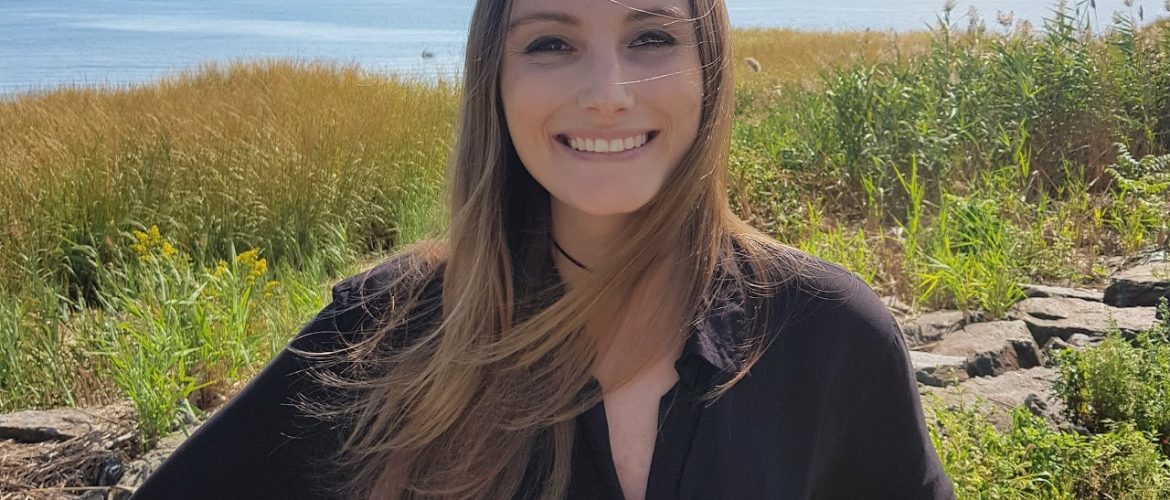Matti (@matti_wilks & mattiwilks.com) is a post-doctoral researcher at Yale University, working with Professor Paul Bloom. She studies moral psychology & moral development – including attitudes to cultivated meat & the “natural”, the moral status of various types of entities & altruism.
In these Sentientist Conversations we talk about the two most important questions: “what’s real?” & “what matters?” Sentientism is “evidence, reason & compassion for all sentient beings.” Click on the video above or here to watch. The audio is also on our Podcast – subscribe on Apple here & the other platforms here.
We discuss:
- Doing research to make the world a better place (& curiosity)
- Growing up non-religious (w/ ex-Jewish father) & vegetarian
- Seeing the benefits & value in religion: Community & compassion
- Open-mindedness & humility
- The danger of over-confidence in naturalism & science
- Researching ve*an children in meat-eating households
- Parallels between religious & omnivore societal defaults and indoctrination/norm setting
- Many “religious” people don’t actually hold to the supernatural beliefs
- Why do we have morality & what should morality be about?
- Being uncertain about whether there are moral truths
- Harm & suffering as inherently bad. The drive to reduce suffering
- Haidt et al’s Moral Foundations Theory
- Even if nothing matters to the universe, experiences matter to each individual sentient being
- Would Isaac killing his son have been right? (No)
- Isn’t choosing whether to care about suffering just choosing whether to be moral?
- People seem to be more ethically motivated than they used to be
- Even Greenwashing is a sign that more people care about the environment
- Public negativity re: factory farming
- Having the capacity to act more ethically is a privilege (being free of survival needs)
- Moral relativism
- Growing up around animals & becoming an “outraged” activist at 15-16 yrs
- Studying animal cognition. “The Gap” by Thomas Suddendorf
- Humans do have distinctive capacities but all sentient animals qualify for moral consideration
- The importance of the moral scope boundary
- Sentientism as pluralistic re: ethical systems
- Degrees of sentience vs. egalitarian approaches
- Sentience as a class of information processing?
- Most people don’t want to cause animal suffering, but personal/cognitive costs impede & their level of concern is lower than it should be vs. human exceptionalism
- Cognitive dissonance & motivated reasoning
- Most religious people still use naturalism for most decisions
- Supernatural and (flawed) scientific ways of justifying radical human supremacy
- Simpler sentients (non-human animals, human babies?) might even suffer more than humans. We can often mitigate our suffering
- “Humans are special, but not quite as special as we think we are”
- “We need to stop asking people to do the hard moral work”. Activists really want people to make a moral change
- “Once people change their behaviour they might be able to change their attitudes and start caring more”
- Cultured/cultivated meat as an example. People can keep doing what they enjoy but without the harms
- Righteousness & preaching are understandable but rarely effective
- The challenges of hiding our righteous indignation in order to engage constructively with others
- To change minds: Start from source they trust or with something they already agree with
- “If you care enough to be an advocate, you’re already not representative of your audience”. What motivates you probably won’t motivate them (e.g. many people go veg*n for health reasons)
- Tracy Schultz’ work re: disturbing images
- Is it naive to think kids are compassionate naturalists?
- “Young children weigh human & animal lives much more closely than adults do”
- “Young children are much less speciesist than adults” 1 human : 1.5 dogs or 6 pigs vs. 1 human : 100 animals
- In-group bias peaks at 4-5 yrs
- “Our strong speciesism is something we learn socially”
- The gap between belief & behaviour “X is wrong but I’m curious/tempted”
- We’ve won the moral argument. So focus more on making it easy (& normal) for people to change behaviour (but keep eyes on the moral outcome!)
- Going veg*n with others makes it much easier & more sticky
- It’s great you’re on a journey but don’t stop
- “Natural” rejection of GMOs/Golden Rice & similar risks for cultivated meat. Process over content
- Emotion (strong) vs. evidence (weak) re: updating beliefs.
Sentientism is “Evidence, reason & compassion for all sentient beings.” More at sentientism.info.
Join our “I’m a Sentientist wall” using this simple form.
Everyone interested, Sentientist or not, is welcome to join our groups. Our main one is here on FaceBook.
Thanks, Graham for the post-production. Follow him at @cgbessellieu.

